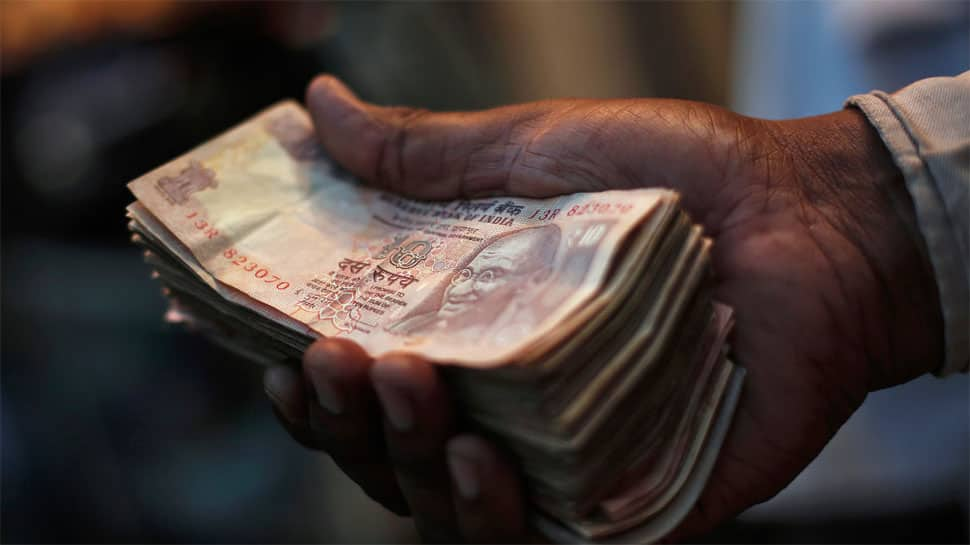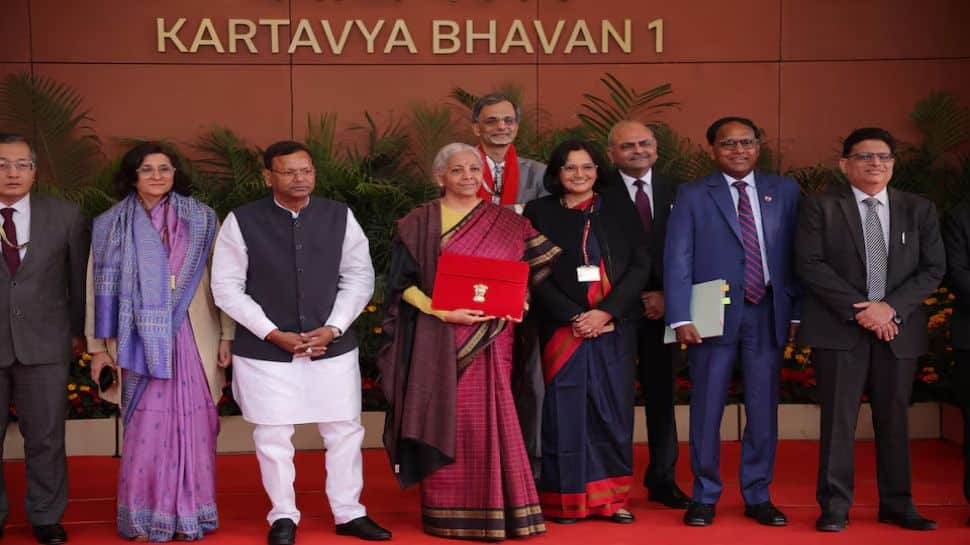Business
South Koreans detained in ICE raid at Hyundai electric vehicle site in Georgia

Almost 500 people have been arrested at a Hyundai factory in the US state of Georgia by immigration authorities in the largest workplace raid of President Donald Trump’s second term.
A majority of those detained at the 3,000-acre site, which was built by the Korean company to manufacture electric vehicles and has been operational for a year, are Korean nationals.
South Korea expressed “concern and regret” over the operation and urged the US government to respect the rights of its citizens.
The Department of Homeland Security told the BBC that agents executed a search warrant due to allegations of “unlawful employment practices and other serious federal crimes”.
“This was not an immigration operation where agents went into the premises, rounded up folks and put them on buses,” Steve Schrank, the special agent in charge of Homeland Security Investigations in Atlanta, said at a news conference on Friday.
“This has been a multi-month criminal investigation where we have developed evidence, conducted interviews gathered documents and presented that evidence… in order to obtain a judicial search warrant,” Schrank added.
He said it was “the largest single-site enforcement operation in the history of homeland security investigations”.
The raid raises a possible tension between two of President Donald Trump’s top priorities – building up manufacturing within the US and cracking down on illegal immigration. It could also put stress on the country’s relationship with a key ally.
President Trump said in the Oval Office on Friday: “They were illegal aliens and ICE was just doing its job.”
Asked by a reporter about the reaction from Seoul, he said: “Well, we want to get along with other countries, and we want to have a great, stable workforce.
“And we have, as I understand it, a lot of illegal aliens, some not the best of people, but we had a lot of illegal aliens working there.”
“These [workers] are people that came through with Biden. They came through illegally.”
Some 475 people who were in the country illegally or working unlawfully were detained in the operation, immigration officials said.
They were being held at a US Immigration and Customs Enforcement (ICE) facility in Folkston, Georgia, until the agency decides where to move them next.
Of those detained, 300 are reported to be Korean nationals.
In a statement, Hyundai Motor Company said it was “closely monitoring the situation and working to understand the specific circumstances”.
“As of today, it is our understanding that none of those detained are directly employed by Hyundai,” it said.
Hyundai’s production of electric vehicles at the sprawling site was not affected, Reuters reported. Its partner in the battery joint venture, South Korea’s LG Energy Solutions, had paused construction work at the site.
Videos on social media show agents lining workers up and telling them they have a warrant to search the facility. The agents can also be seen talking to some of the employees in the videos.
South Korea said it was dispatching diplomats to the site in response to the raid and that it had contacted the US embassy in Seoul to urge the US “to exercise extreme caution” when it came to Korean citizens’ rights.
“The economic activities of Korean investment companies and the rights and interests of Korean citizens must not be unfairly infringed upon during US law enforcement operations,” South Korea’s foreign ministry said in a statement.
Trump has worked to bring in major investments from other countries while also levying tariffs he says will give manufacturers incentives to make goods in the US.
South Korean companies have promised to invest billions of dollars in key US industries in the coming years, partly as a way to avoid tariffs.
Georgia’s Governor, Republican Brian Kemp, had touted Hyundai’s new electric vehicle operation as the biggest economic development project in the state’s history, employing 1,200 people.
But the president also campaigned on cracking down on illegal immigration, telling supporters he believed migrants were stealing jobs from Americans.
Upon returning to office, he launched a massive effort across the country to round up people thought to be in the US illegally, hold them in detention facilities, and frequently deport them.
While many of those caught in the sweeps have ties to Latin American countries, people of other nationalities have also been arrested.
Business
Gold and silver sell-off gathers steam in correction after record highs

Gold and silver prices have continued to drop sharply in a “brutal” sell-off after hitting record highs in recent weeks.
The precious metals began falling on Friday in response to US President Donald Trump’s nomination for the incoming chairman of the Federal Reserve.
His choice for former Fed governor Kevin Warsh to replace current chairman Jerome Powell when his term ends in May soothed some investor nerves, which boosted the US dollar but saw appetite for safe-haven investments gold and silver slump in response.
Gold and silver suffered their worst trading days for decades on Friday and were down heavily again on Monday, with spot prices off by another 7% and 11% respectively at one stage.
Silver had plunged by nearly 30% on Friday and gold dropped over 9% in its worst one-day drop since 1983.
Gold and silver had been enjoying a record breaking rally as investors sought refuge amid global geopolitical uncertainty, conflict and tariff woes.
Ipek Ozkardeskaya, senior analyst at Swissquote, said: “The sell-off has been far more brutal than I, and many, expected.”
He added: “For silver, the rally on the way up was faster than gold’s, so the correction on the way down is faster too.”
Kathleen Brooks, research director at XTB, added: “If the sell off continues, then gold and silver are at risk of eroding their losses for the year so far.
“The historic move lower in silver prices has not stemmed a fall at the start of this week.
“Traders have not yet found a level that they are happy to buy the dips, and the timing of Chinese Lunar New Year in mid-February could accelerate the sell off, as Chinese traders reduce risk ahead of the holiday.”
UK and US stock markets are expected to open in the red on Monday, as the gold and silver rout has a knock on effect on mining giants, while Brent oil was also 5% lower.
Derren Nathan, head of equity research at Hargreaves Lansdown, said: “Mining stocks are likely to feel the heat as metal prices scramble to find a floor.
“Oil prices are also trending the wrong way for investors in commodity-focused companies.”
Business
Budget’s mild fiscal consolidation to be positive for GDP growth: Report

Mumbai: Lower revenue as a share of GDP has been more than offset by cuts to subsidies and spending on current schemes, leading to the smallest fiscal consolidation in six years, likely positive for growth, a new report has said.
The fiscal consolidation for FY27 is the slowest in six years. And the budgeted disinvestment, which is a below-the-line funding item, is likely to see the highest rise in six years, the report from HSBC Global Investment Research said.
“The central government continues with fiscal consolidation, though signing up for a gentler path for FY27; the fiscal impulse will likely turn neutral after several years in the negative, and this should be good news for GDP growth,” the research firm added.
The report said that the services sector was the focus of the Budget, “with ambitious plans and increased outlays for medical institutions, universities, tourism, sports facilities, and the creative economy.”
Urban infrastructure saw a renewed push with each City Economic Region (CER) set to receive get Rs 50 billion over 5 years.
Seven new high-speed rail corridors will connect major cities, the report noted, adding large cities will also get an incentive of Rs 1 billion if they issue municipal bonds worth more than Rs 10 billion.
The report highlighted policy priorities, saying, “new manufacturing sectors were given incentives, namely biopharma, semiconductors, electronic components, rare earth corridors, chemical parks, container manufacturing, and high-tech tool rooms.”
Direct taxes are expected to grow faster than nominal GDP while indirect taxes will expand more slowly, with gross tax revenues budgeted to rise about 8 per cent year‑on‑year, the report said.
Central government set a fiscal deficit target of 4.3 per cent of GDP for FY27 after a 4.4 per cent estimate for FY26, and nominal GDP growth was pegged at 10 per cent.
Business
India’s $5 trillion economy push: How ‘C+1’ strategy could turn country into world’s factory

New Delhi: India is preparing for a major economic transformation. The Union Budget 2026-27 lays out measures that could make the country the top choice for global manufacturing using the popular ‘China +1’ (C+1) strategy. This comes as international companies rethink supply chains after COVID-19 disruptions, rising trade tariffs and geopolitical tensions.
India has positioned itself as the backup factory for the world that is ready to absorb international demand in case of any crisis in China or Taiwan.
The government has offered tax breaks for cell phone, laptop, and semiconductor makers, making India more attractive to foreign investors. Reducing bureaucratic hurdles for global firms, the budget also strengthens the National Single Window System to simplify business procedures. The message is clear: India is ready to step in as a global manufacturing hub, ensuring supply continuity for the world.
The expressway to a $5 trillion economy
China presently dominates about 40% of global manufacturing. Its factories supply critical products worldwide, but 2026 is expected to be a turning point. Expanding influence and economic opacity have made global companies seek alternatives.
India has leveraged this moment, offering a comprehensive incentive package for foreign manufacturers. Analysts call it more than policy; it is a blueprint to become a $5 trillion economy and reclaim India’s historic position as a global industrial leader.
Why the world needs India now
The COVID-19 pandemic exposed the dangers of over-reliance on a single supplier. When China halted medical exports, nations realised the need for diversified supply chains. Major companies such as Apple and Samsung now see India as a dependable alternative.
China’s aging workforce and rising labour costs further enhance India’s appeal. With 65% of its population under 35, India offers a vast, skilled and affordable workforce for decades. The geopolitical uncertainty surrounding Taiwan, which produces 90% of advanced chips, has also created demand for a secure manufacturing backup. India is stepping in to fill that gap.
How India stands to gain from China’s challenges
India’s budget, 2026-27, slashes import duties on cell phone and laptop components, turning the country into a hub for component manufacturing, not just assembly. Electronics exports are projected to cross $120 billion by 2025.
The government has also launched a Rs 1.5 lakh crore semiconductor mission, attracting companies like Tata and Micron to establish advanced chip plants in India. In the chemical sector, stricter environmental regulations in China have shut down several plants, benefiting Indian companies such as Privi Specialty and Aarti Industries, which are now filling gaps in global supply chains.
Incentives for companies
The Production Linked Incentive (PLI) scheme promises cash rewards for output, covering over 14 sectors. This is India’s answer to Chinese subsidies. From land acquisition to electricity connections, the National Single Window System now enables businesses to clear all approvals through a single portal.
Infrastructure investment has also received a massive boost, with Rs 11.11 lakh crore allocated under PM GatiShakti. New ports and dedicated freight corridors are being built to ensure that exports from India reach the world faster and cheaper than ever before.
India’s moves points to a strategic shift in global manufacturing. By rolling out the red carpet for foreign companies and investing heavily in infrastructure, technology and policy reforms, the country is poised to become the go-to destination for global supply chains. The C+1 formula is not only a concept; it is a roadmap to turn India into the next industrial superpower and a $5 trillion economy.
-

 Sports6 days ago
Sports6 days agoPSL 11: Local players’ category renewals unveiled ahead of auction
-

 Entertainment5 days ago
Entertainment5 days agoClaire Danes reveals how she reacted to pregnancy at 44
-

 Tech1 week ago
Tech1 week agoICE Asks Companies About ‘Ad Tech and Big Data’ Tools It Could Use in Investigations
-

 Business6 days ago
Business6 days agoBanking services disrupted as bank employees go on nationwide strike demanding five-day work week
-

 Fashion1 week ago
Fashion1 week agoSpain’s apparel imports up 7.10% in Jan-Oct as sourcing realigns
-

 Sports5 days ago
Sports5 days agoCollege football’s top 100 games of the 2025 season
-

 Politics1 week ago
Politics1 week agoFresh protests after man shot dead in Minneapolis operation
-

 Business1 week ago
Business1 week agoShould smartphones be locked away at gigs and in schools?





